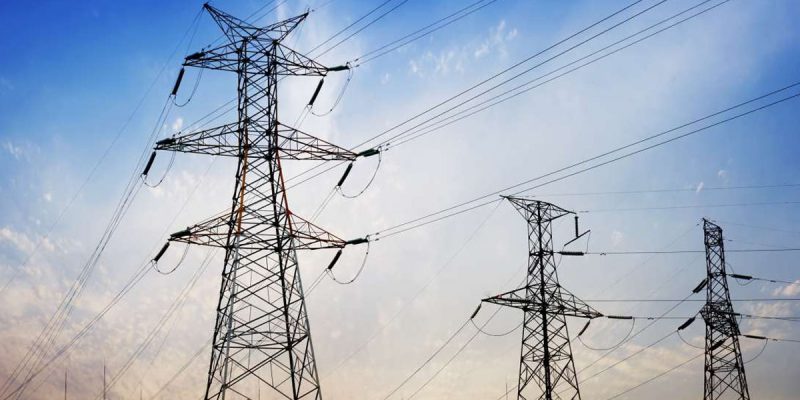Editor’s Note: a guest post by Public Service Commissioner Eric Skrmetta which doubles as a message to utility customers across the state of Louisiana…
I was elected to the Louisiana Public Service Commission in 2008 and took office on January 1, 2009. I represent the territory that includes Ascension, Jefferson, Livingston, parts of Orleans, Plaquemines, St. Bernard, St. Charles, St. Helena, St. Tammany, Tangipahoa, and Washington.
I pledged to lower our utility rates, and I am proud to report that I was able to negotiate our rates down to some of the lowest rates in the nation. I mention negotiate because I am consistently questioning the charges that utility companies want to pass on to consumers. In fact, since being on the commission, I personally prevented consumers from paying more for electricity by rejecting over $3 billion in rate increases and unfair pass-through charges sought from utility companies.
Today, as an elected official and ratepayer myself, I am as frustrated as you are with the rising cost of our utility bills. But I want you to please consider this important fact: Utility rates have not risen, not one penny. Regretfully, our utility bills rise because of two major pass-through costs that I am prohibited from challenging due to federal law.
One of the major costs causing your utility bills to rise is the cost of fuel. On your statement from your utility provider, you will notice a Fuel Adjustment Charge (FAC). The FAC is designed as a direct pass through cost of the price of fuel and only specific related costs that the energy companies incur to generate electricity. The commission cannot regulate the market cost of fuel under the fuel adjustment charge and utility companies are prohibited from profiting from fuel costs. They can only pass their cost onto consumers for the exact cost that they incur.
At the commission, we regularly audit a utility company’s fuel costs to ensure that they are not profiting from fuel costs. And, closely investigate whether or not a utility company has purchased fuel at the lowest possible rate. I have personally overseen both the audit and review process and every company in my territory has complied fully with these constrictions.
The most frustrating addition to our utility bills that federal law prevents me from rejecting are Storm Restoration and Federal Environmental Charges. The Federal Environmental Charge represents the cost of compliance with federal environmental regulations ordered by the Federal government. The interim Storm Restoration Charge represents the costs to repair damage and restore power after natural disasters. In the past three years, Louisiana and the Gulf South have been hit by numerous storms. More than $10 billion of storm costs have been incurred and utility companies have a legal right under federal law to recover those costs.
I sent letters and position papers to our Governor, Congressmen, U.S. Senators, and President Joe Biden urging each to call on the federal government for ratepayer relief. Here is an excerpt from my letter to President Joe Biden that I sent in March of this year:
Advertisement
Mr. President, I am urging you to assist our ratepayers by compelling Congress to expand the Stafford Act to allow the State of Louisiana to seek federal reimbursement aid for the 2020 and 2021 hurricane seasons. The Robert T. Stafford Disaster Relief and Emergency Assistance Act already allows electric co-ops to recover restoration costs for hurricane losses. It seems fundamentally unjust to burden ratepayers of investor-owned utilities with substantial storm restoration costs while consumers of electric cooperatives are spared those restoration fees on their monthly utility bills. I must note that it was only a year ago that the people of Louisiana finally completed paying storm recovery fees created from the damage of Hurricane Katrina in 2005.
Sir, it would be sound public policy if the federal government would help mitigate a consumer’s financial impact derived from a natural disaster. If you do not deem it prudent for Congress to amend the Stafford Act to allow investor utilities to seek federal reimbursement of storm restoration costs without ever burdening ratepayers, perhaps you will consider approving a dedicated Community Development Block Grant to cover investor-owned utility storm costs. Every penny saved by the utility companies on storm costs is a direct offset to the consumer’s monthly bill.
Mr. President, on behalf of the million plus residents and business owners that I represent, I ask humbly “Will you help us?”
I am aware of the level of concern and anger that is stirring due to fuel costs, federal environmental costs and storm restoration charges all simultaneously aligning and impacting your bill. I will continue to work every day to help lessen the burden on all consumers. I will use every opportunity to ensure that the utility companies are working inside the scope of the law, and I will fight every unwarranted or unessential rate increase.
I would appreciate if you could join me and lend your time and voice to the fight against higher utility bills. I would like for you to consider asking Congress and the President to amend the Robert T. Stafford Disaster Relief and Emergency Assistance Act to allow investor-owned utilities with substantial storm restoration costs to receive federal funds so that the burden does not fall solely on the shoulders of utility consumers.
If you choose to call for federal financial support to cover storm restoration charges, or call for the President to address the spiraling costs of fuel, please consider sending your opinions to: The White House at (202) 456-1111, the U. S. Department of Entergy at (202) 586-5000, Senator Bill Cassidy at (202) 224-5824, Senator John Kennedy at (202) 224-462, Congressman Steve Scalise at (202) 225-3015, or Congressman Troy Carter at (202) 225-6636.
Let’s continue to work together towards lowering the cost of electricity. With best wishes, I remain
Respectfully,
Eric Skrmetta
Louisiana Public Service Commissioner, District 1
Advertisement
Advertisement

